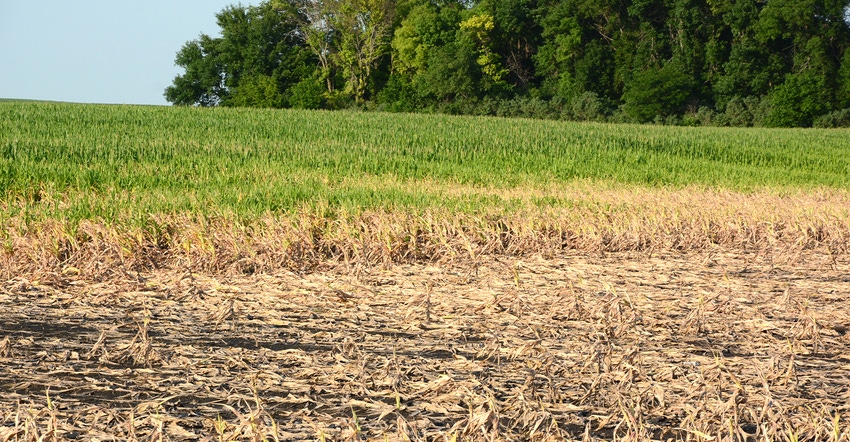January 31, 2020

Farmers have always battled the elements. However, recent extreme weather challenges have led farmers to update their efforts in response. The modern age brings more challenges and responsibilities when it comes to working with and being stewards of the environment.
Minnesota is one of the fastest-warming states in the nation. It has been estimated our agricultural industry accounts for approximately one-quarter of our state’s greenhouse gas emissions.
Farms will continue to be one of many arenas where innovative action against climate change will take place.
Last year, Minnesota, the nation and many parts of the world saw young people march for action on climate change. One response taken by the Minnesota House has been the creation of a Climate Action Caucus. Throughout the last eight months, the Climate Action Caucus has held informational hearings on varying policy areas that impact and are impacted by climate change, including the environment, housing, transportation and public health.
In that theme, the House Agriculture and Food Finance and Policy Division held a hearing on the impacts of climate change on our agricultural industry with an emphasis on what solutions have been proposed and what actions have already been taken.
In late January, the House Agriculture Division held a hearing showcasing the good stewardship efforts being made in Minnesota, including the developing research that will help both farmers and the environment. Assisting farmers as they make climate adaptations like changing tillage practices or growing crops differently will take some time, effort and information sharing. Early adopters have demonstrated the positive results, leading more farmers to research their options. Of course, farming is not a charitable operation, it is a business and thus the results must also show economic, as well as environmental, benefits.
Although there are multiple policy initiatives to be explored when it comes to addressing climate change and protecting our environment in agriculture, there are also ways Minnesota is already leading on this issue. Many of Minnesota’s farmers are already using management practices to reduce emissions of greenhouse gasses in their work. We have become familiar with the phrases “regenerative agriculture,” “cover crops” and “soil health.”
This past fall, the House Agriculture Division made a point to visit several farms and research sites during the legislative interim to see ag innovation and its benefits to the environment. The Becker family farm in southern Minnesota updated legislators on their leading work as soil health advocates, which included a demonstration of the benefits of cover crops and reduced tillage practices when it comes to carbon sequestration. The Hmong American Farmers Association highlighted the dual effort of helping immigrant farmers meet environmental standards while also sharing their own proven conservation practices with a broader community. The Bode family shared how hog farming continues to evolve through generations to use best management practices. And the Agriculture Utilization and Research Institute discussed past and current projects that maximized our ag products in sustainable ways.
I believe there isn’t going to be one fix-all solution when it comes to climate change. Instead, it will be an incremental approach to taking on this issue. We know 25 acres of cover crops can help remove the equivalent of one car’s worth of atmospheric carbon and that’s just one of several best practices that can be implemented on Minnesota cropland.
Cover crops can reduce greenhouse gas emissions by 0.20 tons per acre, and other practices reduce emissions even more. Along with new practices, the Minnesota legislature has placed an emphasis on research of new crops like Kernza and pennycress. Early data shows that perennialized crops like Kernza are also helping to improve drinking water quality for Minnesota communities.
The climate work farmers have been doing to add renewable energy technologies to their operations — from solar installations to methane digesters — is also not going without notice. As showcased at the University of Minnesota’s Midwest Farm Energy Conference this summer, farmers across the state are pushing the need for local utilities to make renewable energy an affordable and accessible source of power for agriculture’s future.
Rep. Poppe, DLF-Austin, is the chair of the Minnesota House Agriculture and Food Finance and Policy Division.
You May Also Like




